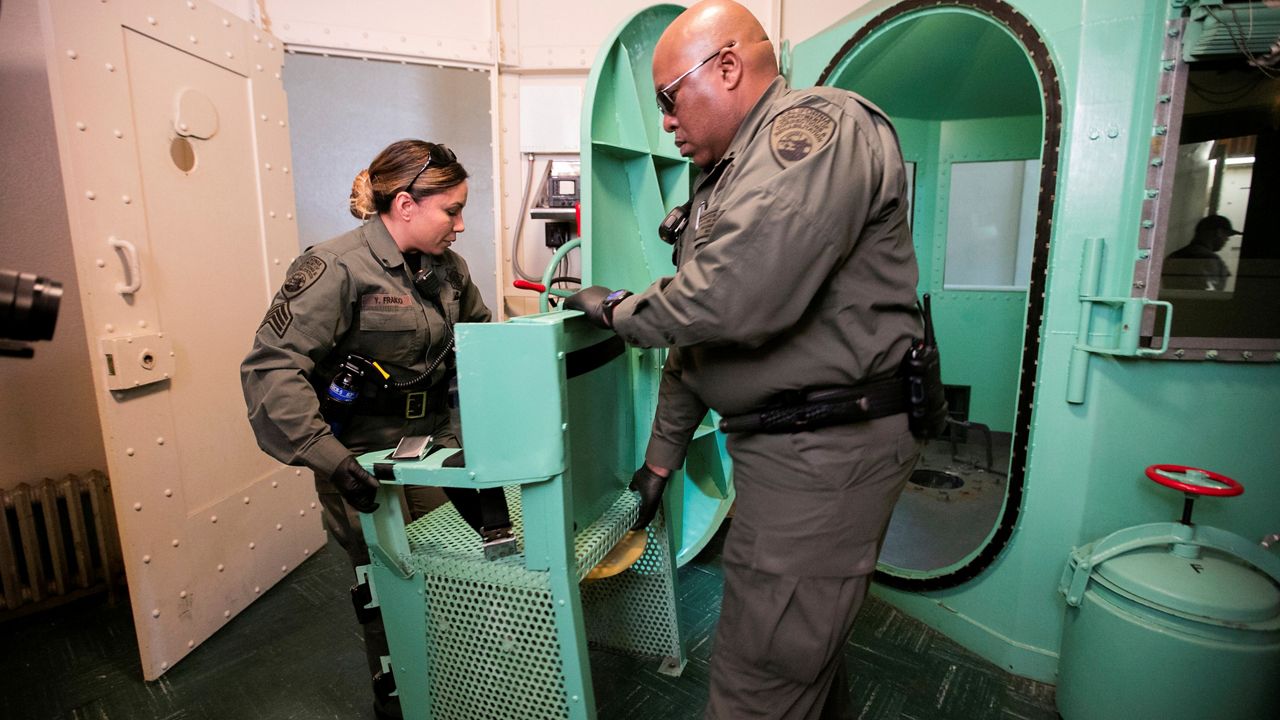LOS ANGELES (AP) — A Los Angeles man twice convicted of murdering his father, stepmother and 8-year-old stepsister 40 years ago had his death sentence reversed Thursday by the California Supreme Court.
What You Need To Know
- The court upheld Robert Bloom's first-degree murder conviction in his father's shooting but reversed second-degree murder convictions in the other slayings
- The court says Bloom's attorneys violated his right to choose his defense by making the tactical decision to tell jurors he killed the stepmother and stepsister
- Prosecutors did not immediately say whether they will seek to retry Bloom in the killings of Josephine Bloom and her daughter, Sandra Hughes
- The 7-0 ruling came on the eve of the 40th anniversary of the killings in the Sun Valley section of Los Angeles
The court upheld Robert Bloom’s first-degree murder conviction in his father’s slaying but reversed second-degree murder convictions in the other killings because his lawyers violated his 6th Amendment right to choose his defense.
Bloom admitted gunning down his father, Robert Bloom Sr., but denied he killed the other two. His attorneys, however, told jurors he had killed Josephine Bloom and her daughter, Sandra Hughes, as part of a legal strategy to claim that his mental state made those crimes manslaughter and not murder.
“Defense counsel conceded, over Bloom’s objection, both that Bloom killed Josephine and Sandra and that Bloom should be held criminally liable for the killings,” Justice Leondra Kruger wrote. “Counsel’s decision to concede Bloom’s guilt on these counts cannot be squared with a rule that gives the criminal defendant the right to ‘oppos(e) . . . any admission of guilt.’”
The Los Angeles district attorney's office did not immediately say whether they will seek to retry Bloom in the other killings.
The 7-0 ruling came on the eve of the 40th anniversary of the killings in the Sun Valley section of Los Angeles.
Bloom, then 18, shot his father in the front lawn then went inside the house and shot his stepmother and shot and stabbed his stepsister, prosecutors said.
Witnesses testified that Bloom's father had beaten him since he was an infant and the two frequently argued.
The day before the killing, Bloom called his father from a pay phone and said, “You’re running my life now, but you won’t be for long," according to one witness.
Bloom was first convicted in 1983 and sentenced to die in 1984. A federal appeals court overturned the case in 1997 because his attorney failed to effectively investigate and present evidence of mental impairment.
During his second trial, jurors convicted Bloom of first-degree murder in his father's slaying but couldn't reach a verdict in the other two counts. After prosecutors dismissed the allegations that those killings were premeditated, jurors convicted him of second-degree murder in the slayings of his stepmom and sister.
Because Bloom had said he was insane at the time of the killings, another phase of trial was held in which jurors found he was sane when he killed his father, but they couldn't reach a sanity verdict on the two other killings.
Bloom then withdrew his plea of not guilty by reason of insanity and proceeded to the penalty phase in which he represented himself. Jurors returned a death verdict and he was sent back to death row in 2001.
The California Supreme Court reversed the death sentence because jurors had found Bloom committed multiple murders.
“The reversal of two of the three charged murder convictions also requires us to reverse the jury’s true finding on the only special circumstance alleged here, multiple murder,” Kruger wrote. “This, finally, requires us to reverse the death judgment, which cannot stand in the absence of a valid special circumstance finding.”
Although prosecutors can seek the death penalty again, that is unlikely because current District Attorney George Gascón is an opponent of capital punishment and has vowed not to pursue that punishment.



